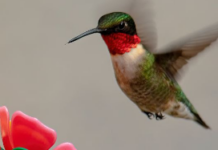From the Office of Public Affairs | http://www.news.ku.edu
Headlines
Nigerians respond to hard times with social media humor
LAWRENCE – The idea that humor is an appropriate response to oppression and is used to shine a light on the truth is an old one, and it comes up yet again with a new twist in a new book by James Yékú, assistant professor of African digital humanities at the University of Kansas, titled “Cultural Netizenship: Social Media, Popular Culture and Performance in Nigeria” (Indiana University Press).
Experts team up to improve outcomes for often-overlooked student population
LAWRENCE — The shared belief that all students have a right to high-quality academic instruction has brought together experts from across the country to improve access to the general education curriculum for students who are deafblind with significant cognitive disabilities. Accessible Teaching, Learning, and Assessment Systems at the University of Kansas and the National Center on Deaf-Blindness have partnered to create teaching resources for this often-overlooked population of students. The project is funded by the U.S. Department of Education’s Office of Special Education Programs.
Full stories below.
————————————————————————
Contact: Rick Hellman, KU News Service, 785-864-8852, [email protected], @RickHellman
Nigerians respond to hard times with social media humor
LAWRENCE – The idea that humor is an appropriate response to oppression and is used to shine a light on the truth is an old one, and it comes up yet again with a new twist in a new book by James Yékú, assistant professor of African digital humanities at the University of Kansas, titled “Cultural Netizenship: Social Media, Popular Culture and Performance in Nigeria” (Indiana University Press).
If Western audiences think of Nigeria and social media together at all, they might recall the worldwide #BringBackOurGirls hashtag campaign spawned by the 2014 kidnapping of 276 schoolchildren by the Islamist terrorists Boko Haram, or the more recent #EndSARS campaign against police brutality by the Special Anti-Robbery Squad.
While Yékú’s new book reflects on those deadly serious efforts, he also focused on the everyday online performance of resistance to “abjection,” or the lack of political power, experienced by ordinary Nigerians, particularly those cultural expressions that rely on humor as a means of politicking. He cited, for instance, memes from 2015, “after the #IstandwithJega hashtag was birthed on Twitter to support the head of the electoral commission, Attahiru Jega. The hashtag trended as a statement of confidence in Jega, who was perceived by many in the country as a social justice crusader who would not be compromised in the electoral process, unlike his predecessors.
“The image served as an online expression of outrage against rumors that the (President Goodluck) Jonathan administration was contemplating replacing Jega with somebody who would aid the incumbent government and disenfranchise the people.”
Yékú included an Instagram post styling Jega as Jegai, mashing up his name with that of the Jedi knight heroes from “Star Wars” and warning off would-be vote fraudsters with an iconic line from the action film. This strategy of remix, Yékú said, is central to how cultural netizenship manifests to describe digital genres of popular culture in commentary discourses.
Another school of memes often employed in Nigerian online political discourse and cited in “Cultural Netizenship” is from an Instagram account the creator calls “Yoruba Bollywood,” in which scenes from Hindu-language Indian cinema emanating from Mumbai are repurposed with new, topical dialogue. Yékú analyzed these memes together with others from the domestic film industry in Nigeria, aka Nollywood — whose classic iteration supplies content for online comedians.
In the book, Yékú documented how social media enables “a golden age” of political humor that is produced by everyday non-elite users on the Nigerian internet.
“The more controversial a political topic is, the more likely it will become a subject of viral social media humor,” he said.
And yet, he said, the comedians who make their feelings known in this way are relatively safe because governments do not always believe any serious critiques of the state take place online. But this is not the case for activists and bloggers, whose resistance is a risk in Nigeria today, even though it is nominally democratic.
“What is important is not whether you have freedom of speech, but whether you have freedom after speech,” Yékú said, referencing a quote by Uganda’s former strongman, Idi Amin, to mark the authoritarian nature of power in Nigeria. “When the government arrests a blogger, he is not arrested for blogging or tweeting content. It’s on some other spurious charges, especially when you’re seen as an anti-government agent online.”
So why does endemic corruption in Nigeria lead content creators to respond so prominently with humor online?
“I think that question has always been raised as to whether we should laugh in the face of tragedy,” Yékú said. “People are today producing internet memes and humor as affective responses to the war that started when Russia invaded Ukraine, right? During the Holocaust in the 1940s, some scholars initially lamented the barbarity of writing poetry after Auschwitz, but poetry was eventually seen as the most convenient means of responding to the tragedy in Germany and Europe generally.
“Anyone who sees aesthetic forms as incapable of comprehending human misfortunes needs to recall that human societies all over the world have always turned to the artistic imagination to make sense of tragedy,” Yékú said. “In the Nigeria instance, the abjection of life summons the use of humor as a way of laughing away suffering.”
Yékú cited the title of Nobel Prize-winning Nigerian author Wole Soyinka’s 2021 novel, “Chronicles from the Land of the Happiest People on Earth,” (Penguin/Random House) as yet another example of political satire that grapples with the pessimism of life in Nigeria. The title, he said, stresses the irony of an early-2000s study that found Nigerians to be the world’s happiest.
“Of course, a lot of people didn’t necessarily think that was true,” Yékú said, “but there’s something in these kinds of assumptions, and it’s that people still find a way to smile and laugh despite economic oppression. People find a way to still make merriment and produce what the French call jouissance, despite their state of precarity. So the sociological facts of abjection in Nigeria are the conditions for the relevance of social media humor.”
-30-
————————————————————————
The official university Twitter account has changed to @UnivOfKansas.
Refollow @KUNews for KU News Service stories, discoveries and experts.
Tweets by KUnews
————————————————————————
Contact: Jackie Hosey, Accessible Teaching, Learning, and Assessment Systems, [email protected], @atlas4learning
Experts team up to improve outcomes for often-overlooked student population
LAWRENCE — The shared belief that all students have a right to high-quality academic instruction has brought together experts from across the country to improve access to the general education curriculum for students who are deafblind with significant cognitive disabilities.
Accessible Teaching, Learning, and Assessment Systems (ATLAS) at the University of Kansas and the National Center on Deaf-Blindness (NCDB) have partnered to create teaching resources for this often-overlooked population of students. The project is funded by the U.S. Department of Education’s Office of Special Education Programs.
ATLAS promotes learning and improved outcomes for all students, with a focus on students with significant cognitive disabilities. NCBD serves children and young adults who are deafblind, with a focus on education. The collaborative project uses research data from both centers to understand more about the student population.
ATLAS Director Meagan Karvonen, ATLAS Associate Director Russell Swinburne Romine and longtime ATLAS collaborator Karen Erickson from the Center for Literacy and Disability Studies at the University of North Carolina Chapel Hill joined NCDB Director Sam Morgan on the project.
The group’s first objective was to identify the student population. Karvonen’s report, Students with Significant Cognitive Disabilities and Dual Sensory Loss, draws on expansive ATLAS and NCDB data to address that topic.
“Educators face a range of challenges in providing access to the general education curriculum for students who are deafblind with significant cognitive disabilities,” Morgan said. “What we know, combined with what ATLAS knows, fills a profound gap in helping us demonstrate the challenge and importance of identifying this population of students as early as possible.”
Karvonen’s work also supports the project’s second goal. Researchers will use ATLAS learning-map models to create teaching resources that support a shift from behavioral and skill-based instruction to conceptually rich academic instruction.
The two centers recently hosted a panel of experts in deafblind education from 14 states. The ATLAS team presented learning-map models that teachers can use to support the shift in instruction. Conceptual, map-based instruction is designed to move students beyond memorization so they understand why they are doing what they are doing. The cognitive skills related to perception, organization and communication benefit students throughout their lives as those skills are applied to a wide range of academic subject matter.
“The first two days were difficult for the participants. We were not only asking them to review the developing resources but also to shift their ways of thinking,” Morgan said. “But by the third day, they were seeing the potential benefits of this approach.”
Swinburne Romine said the team is excited to see the shift in thinking and to build on the work ATLAS does to create resources for an expanded population of students and teachers.
“Special education teachers are among the most dedicated and hardworking people on the planet with little spare time to read hundreds of research articles,” Swinburne Romine said. “The maps show them multiple pathways by which students can achieve different knowledge, skills and understandings and put volumes of research-based findings at their fingertips.”
-30-
————————————————————————
KU News Service
1450 Jayhawk Blvd.
Lawrence KS 66045
Phone: 785-864-3256
Fax: 785-864-3339
[email protected]
http://www.news.ku.edu
Erinn Barcomb-Peterson, director of news and media relations, [email protected]
Today’s News is a free service from the Office of Public Affairs





